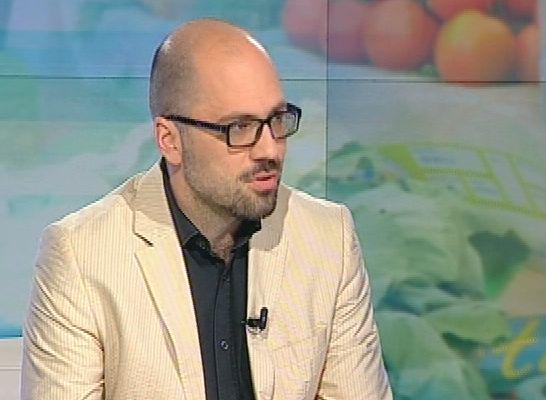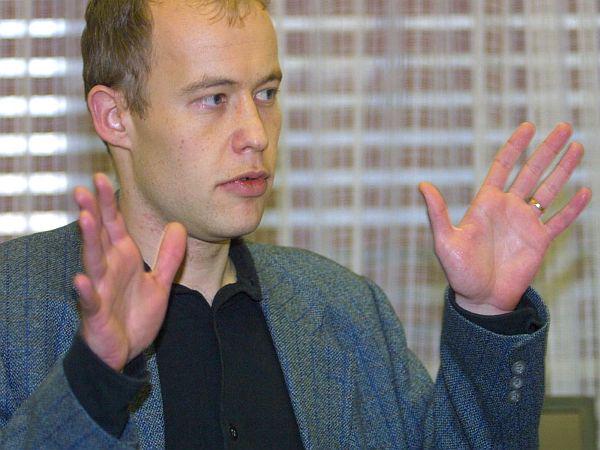

The monopolists which are controlled by the state, such as the energy sector and public utilities, will apply the increased taxes to higher prices, due to which the real income of consumers will be reduced. This will influence the already low consumption which is increasingly hindering the recovery of the economy.
"The increase in both VAT rates would definitely impose an additional burden to the community welfare, and reduce competitiveness of domestic economy,” Aleš Kuhar of the Biotechnical Faculty said for MMC.
“Although everything is just a prediction, this measure is very critical especially due to the discouraging economic environment,” Kuhar wrote, expressing hope that the government would search for a more reasonable solution, even though there are little feasible possibilities/abilities, the lecturer at the Biotechnical Faculty said.
Lahovnik: Politically easiest and economically worst solution
“It seems that the government will again opt for the politically easiest solution, which is the worst solution for the economy and citizens. The VAT increase will hinder the already fragile economic recovery,” the lecturer at the Faculty of Economics in Ljubljana Matej Lahovnik commented the envisaged VAT increase.
Higher prices of energy supplies, public utilities, and more
“The monopolists which are controlled by the state, such as the energy sector and public utilities, will apply the tax increase to higher prices, due to which the real income of consumers will be reduced. This will influence the already low consumption which is increasingly hindering the recovery of the economy,” Lahovnik estimates.
Cutting subsidies
Lahovnik believes that the government has sufficient reserves from the rationalization of public expenditure, especially from reducing various unnecessary subsidies, from which various influential interest groups have benefit. “The subsidies which do not relate to the use of resources from the European Structural Funds should be considerably reduced, as, in contrast to the increase of the tax rates, doing so would not affect the majority of the citizens”.
Privatization at a snail’s pace
Lahovnik estimates that many reserves also come from the efficient management of the state-owned assets. “We should not disregard the fact that privatization takes place at a snail’s pace,” the former finance minister says critically.
CCIS and trade unions remain silent
We have also invited comments from the Chamber of Commerce and Industry of Slovenia (CCIS) and trade unions about the new proposal; however, we haven’t received them yet. It is certain that today many will respond to the envisaged VAT increase, which yesterday evening the finance minister Uroš Čufer had proposed to the coalition as a first measure after the real estate act had been repealed.
A broken promise
The proposal will be discussed by the Civic List this evening, and the leadership of the Democratic Party of Pensioners of Slovenia will meet this afternoon. It is certain that representatives from the economy sector will also make comments, as they oppose to the new tax rates.
It is still not known how much the VAT would increase; however, according to Čufer, the standard rate would probably be increased by two percentage points (currently 22%), and the reduced rate by a half percentage point (currently 9.5%). The new measure shall take effect on 1st May, and the government might adopt it as early as in this Thursday’s regular session.
After the Sunday’s meeting of the coalition, Čufer stressed that his proposal had been positively welcomed. “We still haven’t reached a final decision. I think that everyone has to consider the proposal individually; still, I think that this is an acceptable proposal,” Čufer added.
The Civic List is the main opponent
It is known that the Civic List most strongly opposes the tax increase or the introduction of the new tax rates. The President of the Civic List Gregor Virant refused to comment on the proposals, which the finance minister had made this Sunday. He merely wrote for the Slovenian Press Agency that it is expected that the party leadership will talk about the proposal tonight.
The monopolists which are controlled by the state, such as the energy sector and public utilities, will apply the increased taxes to higher prices, due to which the real income of consumers will be reduced. This will influence the already low consumption which is increasingly hindering the recovery of the economy.

































































